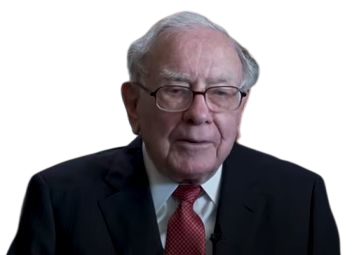During the 2016 Berkshire Hathaway Annual Meeting, Warren Buffett and Charles Munger explained why they don’t do more due diligence when buying companies. Here’s an excerpt from the meeting:
WARREN BUFFETT: Yeah. I get that question fairly often, sometimes — often from lawyers. In fact, our own — we talked to Munger Tolles, the law firm, and that was one of the questions I got, why we didn’t do more due diligence, which we would have paid them by the hour for.
It’s interesting. We’ve made plenty of mistakes in acquisitions. Plenty. And we made mistakes in not making acquisitions, but the mistakes are always about making an improper assessment of the economic conditions in the future of the industry of the company.
They’re not a bad lease. They’re not a specific labor contract. They’re not a questionable patent. They’re not the things that are on the checklist, you know, for every acquisition by every major corporation in America. Those are not the things that count.
What counts is whether you’re wrong about — whether you’ve really got a fix on the basic economics and how the industry’s likely to develop, or whether Amazon’s likely to kill them, you know, in a few years, or that sort of thing.
We have not found a due diligence list that gets at what we think are the real risks when we buy a business. And like I say, we’ve made — we’ve certainly made at least — oh, at least a half a dozen mistakes and probably a lot more if you get into mistakes of omission.
But none of those would have been cured by a lot more due diligence. They might have been cured by us being a little smarter.
It isn’t — it just isn’t the things that are on the checklist that really count. Assessing whether a manager, who I’m going to hand a billion dollars to, for his business, and he is going to hand me a stock certificate, assessing whether he’s going to behave differently in the future in running that business than he has in the past when he owned it, that’s incredibly important, but there’s no checklist in the world that’s going to answer that.
So, if we thought there were items of due diligence — and incidentally, there are a few that get covered. I mean, you want to make sure that they don’t have twice as many shares out as you’re buying or something of the sort.
But they’re — if we thought there were things that we were missing that were of importance in assessing the future economic prospects of the business, you know, we would, by all means, drill down on those.
But the question of — you know, when we bought See’s, it probably had 150 leases. You know, when we — when we buy Precision Castparts, they have 170 plants, you know, there’s going to be pollution problems at some place.
Those are — that is not what determines whether a $32 billion acquisition is going to look good five years from now, or ten years from now.
We try to focus on those things. And I do think it probably facilitates things with, at least, certain people that our method of operation does cut down —
You get into squabbles on small things. I’ve seen deals fall apart because people start arguing about some unimportant point, and their egos get involved, and, you know, they draw lines in the sand and all of that.
I think we gain a lot. When we start to make a deal, it usually gets done. Charlie.
CHARLIE MUNGER: Well, if you stop to think about it, business quality usually counts on something more than whether you cross the T in some old lease or something.
And the human quality of the management who are going to stay are very important. And how are you going to check that as — by due diligence, you know?
And I think — I don’t know anybody who’s had a generally better record than Berkshire in judging business quality and the human quality of the people.
We’re going to lead the business after it’s acquired, and I don’t think it would’ve improved at all by using some different method. So I think the answer is that for us, at least, we’re doing it the way we should.
For all the latest news and podcasts, join our free newsletter here.
Don’t forget to check out our FREE Large Cap 1000 – Stock Screener, here at The Acquirer’s Multiple:



